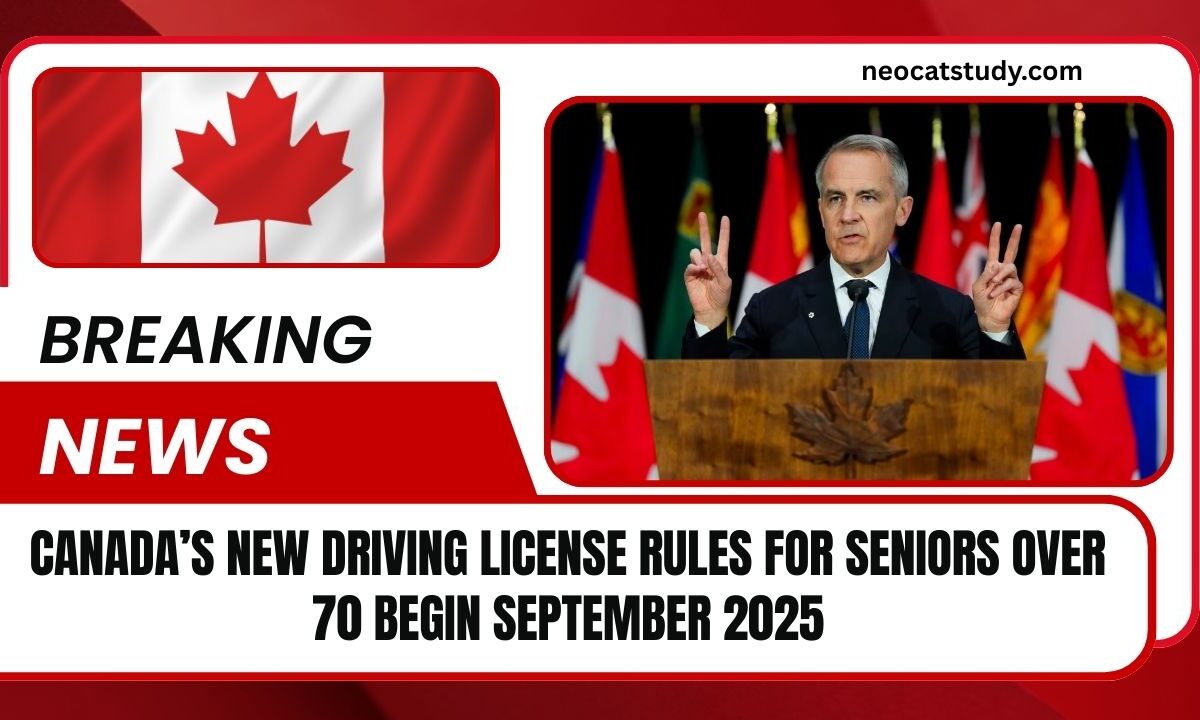If you’ve been scrolling through headlines recently, you might have seen dramatic warnings about a supposed federal law removing the driving rights of Canadians over 70 starting in September 2025.
Social media debates quickly spread panic, with many seniors worried they’ll be grounded overnight. The truth, however, is much more balanced.
Canada is not introducing a blanket ban. Instead, provinces and territories are coming together to standardize driving assessments for seniors. The goal is to ensure safety while protecting independence for older drivers.
Who Is Really in Charge?
The first myth to clear up is that Ottawa is not controlling driver licensing. In Canada, licensing has always been under provincial and territorial authority.
- Ontario has its own rules.
- British Columbia operates differently.
- Alberta and Quebec each have unique systems.
What’s happening in 2025 is a coordinated framework. Provinces and territories have agreed to adopt consistent checks for drivers aged 70+.
What the New Rules Really Mean
The new guidelines are not designed to punish seniors. They are about road safety for all Canadians.
For drivers aged 70 and above, the changes include:
- Medical check-ins at licence renewal.
- Vision and reflex assessments.
- Cognitive screenings when necessary.
- Road tests if flagged by earlier results.
Think of it like an annual physical for your licence. If you pass, you continue driving as normal. A healthy 72-year-old with clear eyesight and steady reflexes will keep their licence without issue.
Why Now?
The push for reform is due to demographic changes. Canada has more licensed drivers over 70 than ever before.
Most seniors are careful drivers, but age-related changes—slower reaction times, weaker night vision, or reduced mobility—can increase accident risks.
The Money Question
One of the most pressing concerns for seniors is the cost of these assessments. Medical and vision exams are not free everywhere, and policies vary depending on the province.
Here’s a breakdown of how it looks:
| Province/Territory | Cost to Senior | Notes |
|---|---|---|
| Ontario | Vision often free; medical costs vary | Road test only if flagged |
| British Columbia | Covered by MSP | Some seniors exempt from fees |
| Alberta | $85–$150 out of pocket | Paid by driver directly |
| Quebec | Mostly covered | Renewal every 2 years for drivers 75+ |
| Atlantic Provinces | Mixed, varies by province | Some subsidies available |
The Legal Debate
Critics argue that the new rules may verge on age discrimination. However, Canadian law allows age-based restrictions if they are justified by safety.
Provinces emphasize that assessments are ability-based. It is not the number of birthdays that matters but whether a driver is healthy and capable.
Even so, legal challenges are possible, as groups may argue that seniors are unfairly targeted. The courts will likely be asked to balance public safety with fairness.
Life Without the Keys
For many seniors, the fear is not the loss of the car, but the loss of independence. Recognizing this, governments are expanding mobility options, such as:
- Discounted public transit passes.
- Subsidized ride services for seniors.
- Volunteer driver programs for medical visits.
- Community shuttle services in rural towns.
The clear message: seniors should not feel stranded if they cannot drive anymore.
How to Prepare if You Are Approaching 70
If you are nearing 70, a proactive approach can help:
- Book regular eye exams and monitor vision changes.
- Stay active to keep reflexes sharp.
- Take a refresher driving course—this can also reduce insurance costs.
- Learn about transit or ride programs in your area before you need them.
These steps can reduce stress and extend your safe driving years.
Fact Check
- There is no federal law banning seniors from driving in September 2025.
- The new framework is provincial, with phased rollouts.
- Seniors who are healthy and pass their assessments will keep their licences.
Starting in September 2025, Canadian drivers aged 70 and older will see new, standardized rules for licence renewal.
These are not blanket bans but safety checks designed to keep seniors behind the wheel as long as they are healthy.
While costs and rollout details vary by province, the aim is clear: to balance road safety with independence. Seniors should prepare by taking care of their health, staying active, and exploring mobility alternatives.
FAQs
No. Seniors only face extra checks. If you pass medical and vision assessments, you keep your licence.
Mostly. Provinces are following a shared framework, but timelines and details may differ slightly.
It depends on your province. Some cover costs, while others require seniors to pay out of pocket.
